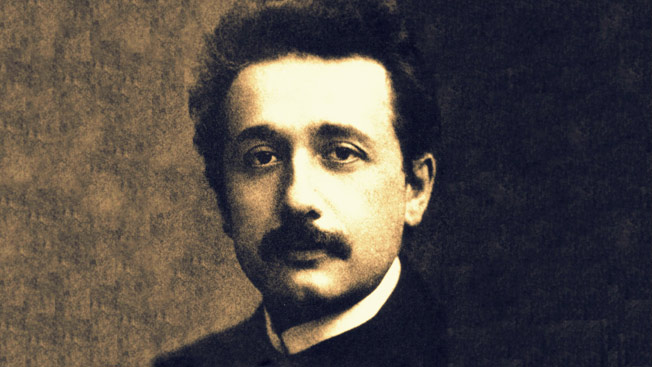
I recently finished Walter Isaacson’s biography of Albert Einstein. The biography covers not just Einstein’s intellectual achievements, but also his anti-war activism, marital difficulties and celebrity. However, I wanted to share just the one part I found most interesting: how did Einstein learn?
Wanting to understand how Einstein learned physics may, at first, seem as pointless as trying to fly by watching birds and flapping your arms really hard. How do you emulate someone who is synonymous with genius?
However, I think the investigation can still bear fruits, even if you or I might not have the intellectual gifts to revolutionize physics. Whatever Einstein did to learn, he clearly did something right, so there’s merit in trying to figure out what that was.
How Smart Was Einstein? (Did He Really Fail Elementary Mathematics?)
One of the most common stories about Einstein is that he failed grade school math. I think this is one of those ideas that sounds so good it has to get repeated, regardless of whether it is true or not.
Unfortunately, it’s not true. Einstein was a strong math student from a very young age. He himself admits:
“I never failed in mathematics. Before I was fifteen I had mastered differential and integral calculus.”
While the story about Einstein being an early dullard is certainly false, it’s not the case that he was universally regarded as a genius, either.
In college, Einstein often struggled in math, getting 5s and 6s (out of a possible 6) in physics, but getting only 4s in most of his math courses (barely a passing grade). His mathematics professor, and future collaborator, Hermann Minkowski called him a “lazy dog” and physics professor, Jean Pernet, even flunked Einstein with a score of 1 in an experimental physics course.
At the end of college, Einstein had the dubious distinction of graduating as the second-to-worst student in the class.
The difficulty Einstein had was undoubtedly due in part to his non-conformist streak and rebellious attitude, which didn’t sit well in an academic environment. This would follow him in his future academic career, when he was struggling to find teaching jobs at universities, even after he had already done the work which would later win him the Nobel prize.
Einstein’s discoveries in physics were truly revolutionary, which certainly earns him the title of “genius” by any reasonable standard. However, the early picture of Einstein is more complicated than that. All of this indicates to me, at least, that it can often be very easy to judge the genius of someone after the fact, but perhaps harder to predict in advance.
How Did Einstein Learn Math and Physics?
Given Einstein’s enormous contributions to physics, I think it’s now worthwhile to ask how he learned it.
Throughout the biography, I took notes whenever his methods of learning and discovery were mentioned. Then, I tried to synthesize these observations into several methods or behaviors that appeared to have enabled both Einstein’s revolutionary discoveries and his deep understanding of the subject matter.
1. Learning comes from solving hard problems, not attending classes
One thing that becomes apparent when looking at Einstein’s early schooling was both his distaste for rote memorization and attending classes. The physics professor that flunked him, did so, in no small part, because Einstein often skipped class. As he claims, “I played hooky a lot and studied the masters of theoretical physics with a holy zeal at home.”
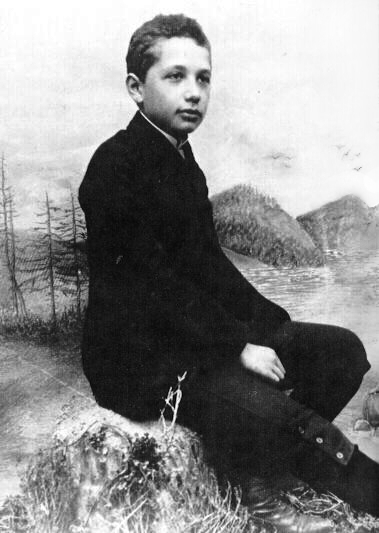
This habit of skipping classes to focus on solving hard problems in his spare time was one cultivated by his uncle, Jakob Einstein, who first introduced him to algebra. By the time he was 12, Einstein already had a, “predilection for solving complicated problems in arithmetic,” and his parents bought him an advanced mathematical textbook he could study from during the summer.
Einstein learned physics, not by dutifully attending classes, but by obsessively playing with the ideas and equations on his own. Doing, not listening, was the starting point for how he learned physics.
2. You really know something when you can prove it yourself
How do you know when you really understand something? Einstein’s method was to try prove the proposition himself! This began at an early age, when Uncle Jakob, challenged him to prove Pythagoras’s Theorem:
“After much effort, I succeeded in ‘proving’ this theorem on the basis of the similarity of triangles,” Einstein recalled.
Isaacson explains that Einstein, “tackled new theories by trying to prove them on his own.” This approach to learning physics, which came naturally to Einstein, was driven by a strong curiosity both to know how things actually work, and a belief that, “nature could be understood as a relatively simple mathematical structure.”
What’s important to note here is not only the method of proving propositions to learn physics, but also the drive to do so. It’s clear that Einstein’s curiosity wasn’t merely to perform adequately, but to develop a deep understanding and intuition about physical concepts.
3. Intuition matters more than equations
Einstein was a better intuitive physicist than he was a mathematician. In fact, it was only when he struggled for years in developing general relativity, that he became more enamored with mathematical formalisms as a way of doing physics.
An early influence which encouraged this intuitive approach to physics was a series of science books by Aaron Bernstein. These books presented imaginative pictures to understand physical phenomenon, such as, “an imaginary trip through space,” to understand an electrical signal and even discussing the constancy of the speed of light, a matter which would later underpin Einstein’s discovery of special relativity.
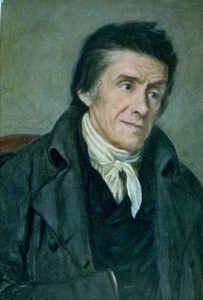
Einstein’s later education in Aarau, Switzerland, was heavily influenced by the philosophy of Swiss educational reformer, Johann Heinrich Pestalozzi. Pestalozzi claimed, “Visual understanding is the essential and only true means of teaching how to judge things correctly,” adding, “the learning of numbers and language must definitely be subordinated.”
Were these early influences causal factors in Einstein’s later preferred style of visualization to solve physics problems, or were they merely a welcome encouragement for a mind that was already predisposed to reasoning in this way? It’s hard to tell. Whatever the case, I think it can be argued that developing intuitions of ideas, particularly visual intuitions, has an invaluable role in physics.
How does one develop those intuitions? Einstein’s own thoughts were that “intuition is nothing but the outcome of earlier intellectual experience.” Einstein’s hard work building understanding through proofs and solving problems undoubtedly supported his ability to visualize as much as it benefited from it.
4. Thinking requires a quiet space and deep focus
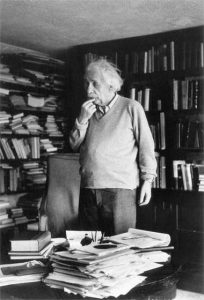
Einstein was a master of deep work. He had an incredible ability to focus, his son reporting:
“Even the loudest baby-crying didn’t seem to disturb Father,” adding, “He could go on with his work completely impervious to noise.”
Although overlooked for academic positions, it was his intellectually unstimulating job at the Bern patent office, which gave him time and privacy to unravel the mysteries of relativity. Einstein remarks:
“I was able to do a full day’s work in only two or three hours. The remaining part of the day, I would work out my own ideas.”
The obsessive focus Einstein applied to solving problems as a young boy, eventually served him well in cracking general relativity, culminating in an “exhausting four-week frenzy.” This intensity sometimes impacted his health, with him developing stomach problems in his strain to unravel the difficult mathematics of tensor field equations.
Einstein’s ability to focus, combined with a reverence for solitude, allowed him to do some of his best work in physics. Even as he aged, he still spent many hours on his boat, idly pushing the rudder seemingly lost in thought, interrupted by bursts of scribbling equations in his notebook.
5. Understand ideas through thought experiments
Einstein’s most famous method for learning and discovering physics has to be the thought experiment.
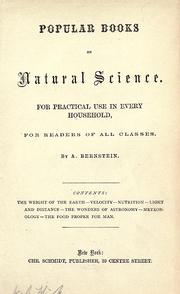
One of his most famous was imagining riding on a beam of light. What would happen to the light beam as he rode alongside it at the same speed? Well, it would have to freeze. This, to Einstein, seemed impossible by his faith in Maxwell’s electromagnetic equations. But if the light doesn’t freeze, what must happen?
These thought experiments were built on his intuitive understanding of physics, which in turn was built on his experience with working through theories and problems. Their strength, however, was to draw attention to contradictions or confusions that may have been missed by a less intuitive physicist.
His ability to engage in thought experiments even served him when he ended up being wrong about the underlying physics. It was exactly this type of thought experiment that he suggested to refute the current understanding of quantum physics in what is now known as the ERP paper, which showed that quantum mechanics could create changes in a system instantaneously, violating the speed of light. In this case, however, Einstein’s intuition was wrong—quantum mechanical systems do behave in such bizarre ways—which is now known as quantum entanglement.
6. Overturn common sense… with more common sense
Special and general relativity stand out as being some of the most mind-bending scientific discoveries of all time. With special relativity, Einstein discovered that there is no absolute time—that two people moving at different speeds can disagree about the passage of time—with neither being right or wrong. With general relativity, Einstein went further, showing that gravity bends space and time.
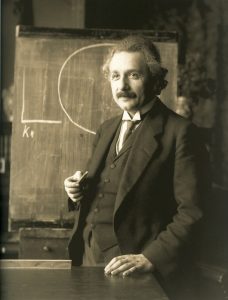
It would be reasonable to assume, therefore, that to overturn such commonsense principles would require some departure from common sense. However, Einstein’s genius was to reconcile two commonsense principles—relativity and the constancy of the speed of light—by discarding a third (the idea of absolute measurements of space and time).
Einstein’s talent, it would seem, lay in his ability to defend what he thought were the most reasonable ideas, even if that meant discarding ones which had a longer tradition of being thought to be correct.
This skill of overturning commonsense with other intuitions may have also eventually been behind his inability to accept quantum mechanics, a very successful theory of physics that he himself helped create. His intuitions about strict determinism, led him to champion an unsuccessful and quixotic quest to overturn the theory for much of his life.
This practice also suggests a method for learning the many, counter-intuitive principles of math and physics—start by building off of a different commonsense premise.
7. Insights come from friendly walks
While solitude and focus were essential components of how Einstein learned and did physics, it was often conversations with other people that provided his breakthroughs.
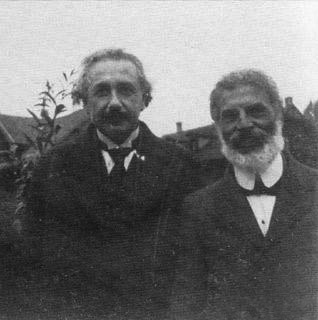
The most famous example of this was a walk with longtime friend Michele Besso. During his struggles with special relativity, he walked with his friend trying to explain his theory. Frustrated, he declared that, “he was going to give up,” working on the theory. Suddenly, however, the correct insight came to him and the next day he told Besso that he had, “completely solved the problem.”
Discussing ideas aloud, sharing them with others, can often put together insights that were previously unconnected. Einstein made great use of this technique of discussing tricky problems with friends and colleagues, even if they were merely a sounding board rather than an active participant in the discussion.
8. Be rebellious
Einstein was never much of a conformist. While his rebellious streak probably hurt his earlier academic career when he was struggling to find work in physics, it is also probably what enabled his greatest discoveries and accentuated his later celebrity.
This rebelliousness likely helped him in learning physics as he pushed against the traditions and orthodoxy he didn’t agree with. He hated the German educational system, finding in Isaacson’s words, “the style of teaching—rote drills, impatience with questioning—to be repugnant.” This rejection of the common educational method encouraged him to learn physics on his own through textbooks and practice.
Later, the same rebelliousness would be essential in revolutionizing physics. His research on the quantization of light, for instance, had been first discovered by Max Planck. However, unlike the older Planck, Einstein saw the quantization as being a physical reality—photons—rather than a mathematical contrivance. He was less attached to the predominant theory of the time that light was a wave in the ether.
Where many students would have been happy to conform to predominant educational and theoretical orthodoxies, Einstein wasn’t satisfied unless something made sense to him personally.
9. All knowledge starts with curiosity
“Curiosity has its own reason for existing,” Einstein explains. “One cannot help but be in awe when one contemplates the mysteries of eternity, of life, of the marvelous structure of reality.”
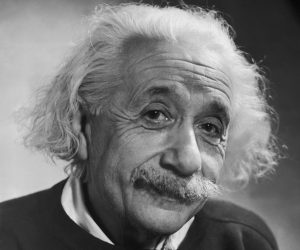
This curiosity is probably Einstein’s most defining quality, after his intelligence. His love of physics started as a boy when he was given a compass and fascinated by the idea that the needle moved because of an unseen force.
Curiosity was his motivation for learning physics. Einstein, who could be quite lazy and obstinate when a matter didn’t interest him, nonetheless had an intense passion for understanding the things, “the ordinary adult never bothers his head about.” Curiosity was also, in his own mind, the greatest reason for his accomplishments.
Einstein believed that, “love is a better teacher than a sense of duty.” Love of learning and knowledge is, perhaps, a more important skill to cultivate than discipline.
Learning as Einstein Did
Einstein’s approach towards learning cannot be entirely separated from who he was. Was his obsessive focus a result of his intelligence or his curiosity? Did his ability to easily visualize thought experiments come from encouragement in an unusual Swiss education system, extensive practice or natural ability? Was his revolution in physics a product of genius, rebelliousness, luck or maybe all three? I’m not sure there are clear answers to any of those questions.
What is clear, however, was Einstein’s reverence for nature and the humbled attitude to which he approached investigating it. As he wrote:
“A spirit is manifest in the laws of the universe—a spirit vastly superior to that of man, and one in the face of which we with our modest powers must feel humble.”
And, so even if Einstein’s genius may lay outside the reach of most of us, his curiosity, humility and tenacity are still worth emulating.


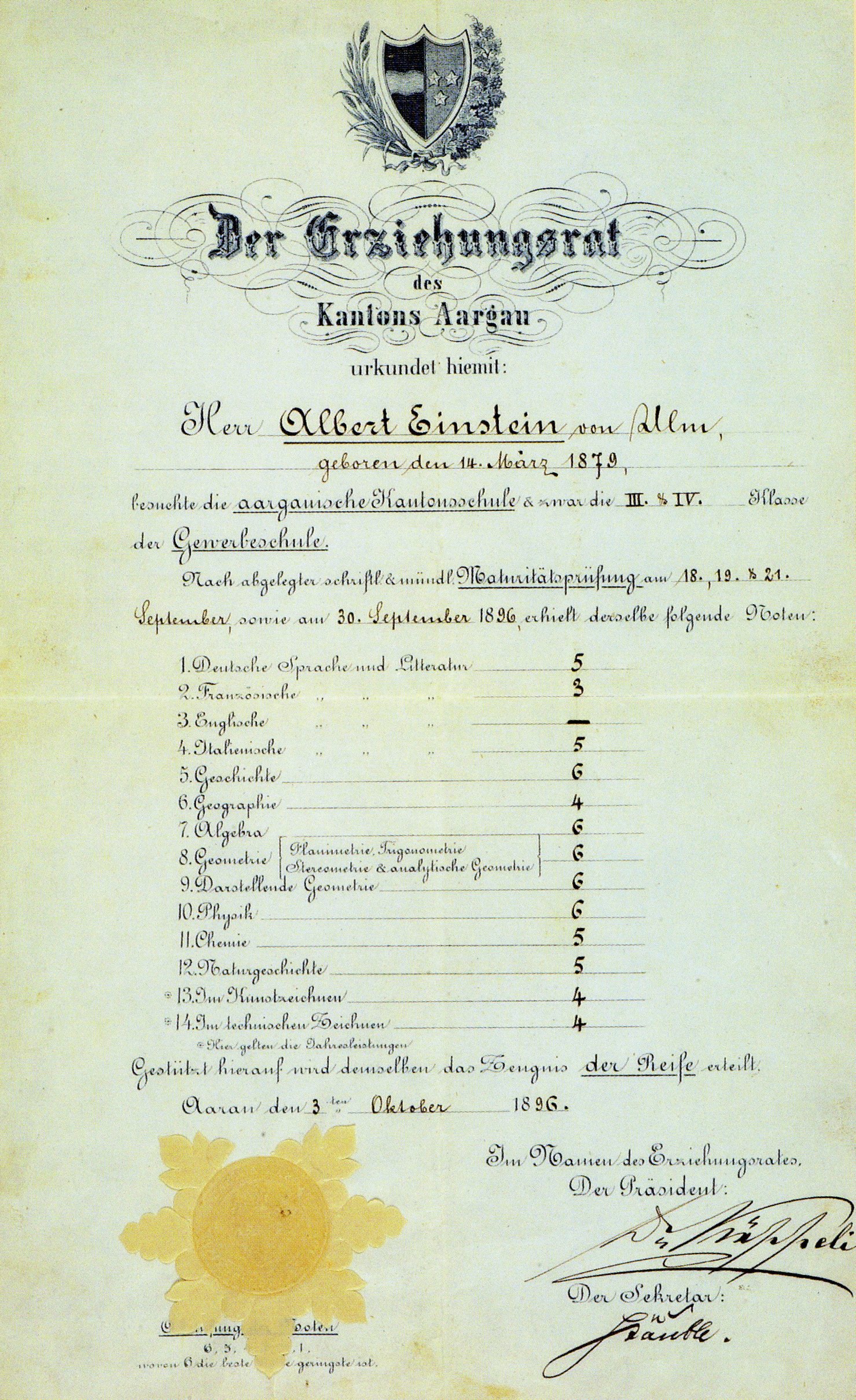
 I'm a Wall Street Journal bestselling author, podcast host, computer programmer and an avid reader. Since 2006, I've published weekly essays on this website to help people like you learn and think better. My work has been featured in The New York Times, BBC, TEDx, Pocket, Business Insider and more. I don't promise I have all the answers, just a place to start.
I'm a Wall Street Journal bestselling author, podcast host, computer programmer and an avid reader. Since 2006, I've published weekly essays on this website to help people like you learn and think better. My work has been featured in The New York Times, BBC, TEDx, Pocket, Business Insider and more. I don't promise I have all the answers, just a place to start.